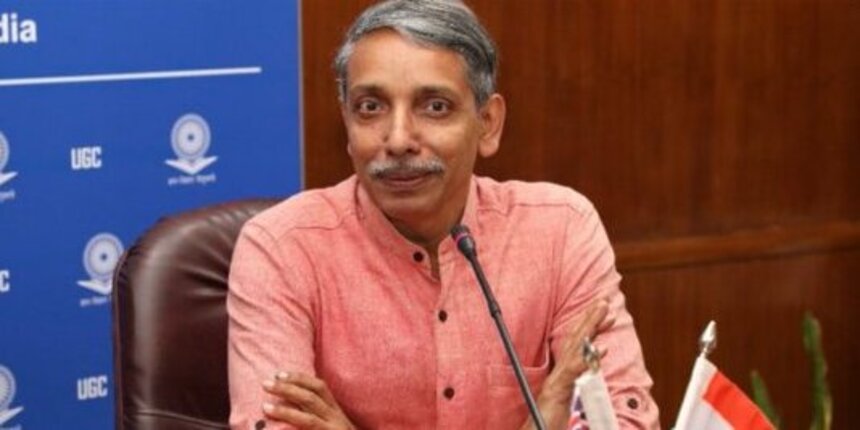Scholarship delays to discrimination: UGC explains functions to university ombudspersons
Shradha Chettri | February 6, 2024 | 05:22 PM IST | 3 mins read
University ombudsperson are expected to address the needs of individual students, not student unions, clarified UGC chairman M Jagadesh Kumar.

NEW DELHI: Should university ombudspersons address grievances raised by student unions? What should they do in case of complaints about delays in fellowships? These and more questions were raised by university ombudspersons, newly appointed under the UGC Redressal of Grievance of Students Regulations 2023, at an online meeting with the University Grants Commission on Monday, February 5.
It was the first online meeting chaired by the UGC chairman M Jagadesh Kumar. He stressed on the need to have proper grievance redress mechanisms in all universities. According to the data shared by UGC officials, around 700 universities have already appointed ombudspersons and formed a committee for grievance redressal.
The ombudspersons are retired vice-chancellors or retired professors who have worked as deans or heads of department, with 10 years of experience at state or central universities, Institutions of National Importance or deemed to be universities; or a former district judge.
Deepak Vats, UGC joint secretary, said: “Around 300 universities are yet to implement the regulations. We have written to the principal secretaries, chief ministers of all the states and union territories, and authorities of universities and colleges to implement the regulation.”
On January 18, 2024, the UGC had isssued a list of 417 defaulter universities which had not implemented the regulation.
Kumar also stressed on the need to have a proper system of grievance redressal so that students do not harm themselves.
“Students should not be considered as adversaries, and it is important to be empathetic towards them. It is important that problems such as non-refund of fee, issues with supervisors, discrimination and hostel troubles be addressed on priority so that students don’t feel helpless,” he said.
UGC ombudspersons’ role
Aniruddha B Pandit, ombudsperson at ICT Mumbai University, said, “We also get grievances related to non-disbursal and delay in release of fellowship by UGC. How are we supposed to address such concerns? Our emails to UGC also go unanswered.”
Kumar replied: “There is a dedicated platform for fellowship disbursal, however in case of issues you can write to the scholarship section of the commission.”
Another ombudsperson said that they also receive applications and grievances from the students’ union. “Can it be addressed under this system?” he asked.
In response, Kumar added, “The mechanism is to address the problems of single students. Universities should conduct awareness programmes every semester or when new students come in.”
The ombudsperson of SCSVMV Kanchi University, Tamil Nadu, highlighted the need of conducting an induction programme for the ombudsperson as well. The UGC official said that there will be continuous interaction and another meeting will again be held after six months.
An official of Calicut University highlighted how they already have a system of board of adjudication which takes decisions as per the university statute. “Due to this there is a confusion regarding both the committee and we do not know what to do,” he said. Kumar said the old committee can be renamed and the decisions taken by ombudsperson incorporated.
UGC rules on grievance redress
The new regulation superseded the UGC Redress of Grievance of Students Regulations, 2019. The new regulations require all higher education institutions to set up Students Grievances Redressal Committee (s) (SGRC) and appointment of ombudsperson (s) at the university level.
According to the guidelines, the redressal committee will include a professor as chairperson, four professors or senior faculty members of the institution as members, and a representative from among students to be nominated on academic merit or excellence in sports or performance in co-curricular activities- special Invitee.
The committee and ombudsperson will hear and redress students’ complaints within 15 days on matters such as admissions, fees, exams, scholarships, harassment etc.
Follow us for the latest education news on colleges and universities, admission, courses, exams, research, education policies, study abroad and more..
To get in touch, write to us at news@careers360.com.